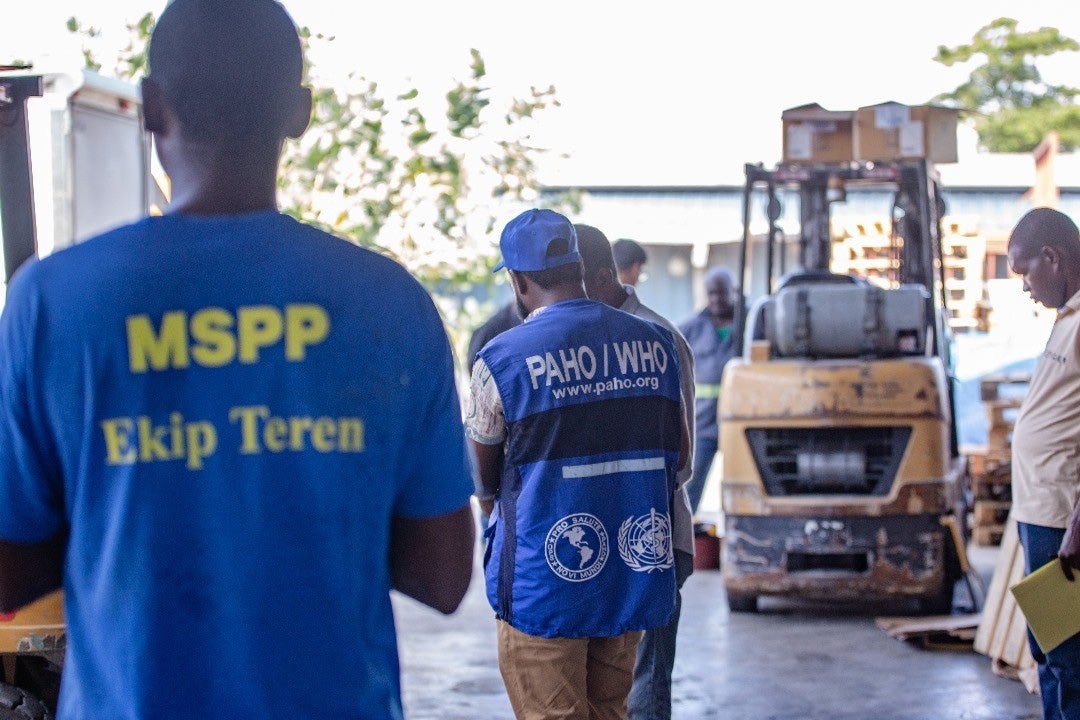
In 2024, the Organization delivered more than 38 tons of medical supplies and facilitated mobile clinics, in addition to supporting monitoring and water and sanitation activities to prevent cholera outbreaks.
Port-au-Prince/Washington, DC, December 18, 2024 (PAHO) – As violence continues to increase in Haiti, the Pan American Health Organization (PAHO) calls for urgent protection of medical facilities and health services. As armed groups attack health facilities, the country’s already fragile health system is under unprecedented pressure, severely impacting access to essential medical care.
The situation in Haiti has become increasingly serious, with more than 700,000 people displaced due to violence. In December, the Bernard Mevs hospital in Port-au-Prince was partially destroyed, further aggravating already limited healthcare capacity.
“The attack on the Bernard Mevs hospital is a tragic blow to Haiti’s already fragile health system. “I am deeply concerned by the escalation of violence and stand in solidarity with the Haitian health community,” said PAHO Director Dr. Jarbas Barbosa. «It is essential to protect healthcare facilities, patients, healthcare workers, equipment and medical activities.»
Prior to this, Doctors Without Borders (MSF), a key humanitarian partner, suspended its operations in the capital for three weeks. The last remaining public hospital in the Port-au-Prince metropolitan area capable of handling a surge of mass casualties, Hôpital Universitaire La Paix, is operating under immense pressure as it struggles to care for a growing number of patients amid a volatile environment .
International humanitarian law requires the protection of health workers, facilities and services during conflict, ensuring that health care remains accessible to all, regardless of affiliation. The increasing attacks on hospitals and healthcare workers highlight the urgent need for these laws to be respected to safeguard the lives of both patients and healthcare workers.
Amid the violence, PAHO is working closely with Haiti’s Ministry of Public Health and Population (MSPP) and other humanitarian partners to provide support. In 2024, PAHO delivered more than 38 tons of essential medicines and medical supplies to support the continuity of services in operational health facilities and facilitated the mobilization of MSPP mobile clinics, which have provided more than 9,000 consultations in health sites. internally displaced people (IDP).
In addition to the current violence, Haiti experienced a resurgence of cholera in October 2022, which spread throughout the country. Although suspected cholera cases have decreased across the country, localized outbreaks continue to be reported, particularly in internally displaced persons sites, where crowded conditions facilitate the spread of the disease. The MSPP, in collaboration with PAHO, remains alert and maintains proactive surveillance to prevent new outbreaks of the disease, particularly in internally displaced persons sites. PAHO has also supported water, sanitation and hygiene (WASH) activities to prevent the spread of cholera.
PAHO has played a decisive role in supporting Hôpital Universitaire La Paix, allowing it to treat, free of charge, more than 21,000 patients in its emergency services since the beginning of 2024. Essential medicines and materials provided by PAHO have also allowed that the hospital offers free care. to vulnerable populations, including pregnant women and internally displaced people. This support has also allowed the hospital and other supported health centers to perform cesarean sections at reduced costs, ensuring essential care for those who need it.
The Pan American Health Organization continues to support Haiti’s health infrastructure by providing essential medicines, training health workers, and facilitating the continued operation of critical health services, particularly in the most affected areas.
PAHO response operations are made possible through collaborations with partners such as the United Nations Central Emergency Response Fund (CERF), the German Foreign Ministry, the European Union, and the United States Agency for International Development (USAID).







